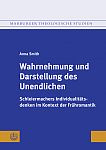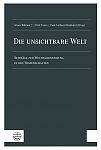Religion, Trauma and Reconciliation
Ed. by Andrea Bieler, Christian Bingel and Hans-Martin Gutmann
The violence unleashed in various forms of warfare and systemic injustice does not simply disappear once a war or a dictatorship is officially ended. The effects of violence continue to live on powerfully in both psychic processes and in communal and personal relationships.
What enables people to live in the aftermath of traumatizing acts of violence? Is it possible to disrupt the vicious circle of destructive reciprocity at work in armed conflicts, wars, and genocide? What does it mean to open up spaces of remembrance and mourning which do not reproduce violence mimetically? What does it mean to reflect theologically on reconciliation in these contexts? Is it possible to achieve reconciliation that does not let the perpetrators of violence off too easy, thus adding to the humiliation of the survivors?
The contributors to this volume examine an array of situations in the aftermath of violence, in which new forms of violence have emerged, including post-Apartheid South Africa, Rwanda after the genocide, postcolonial New Guinea, Ireland and Northern Ireland since the ›Good Friday Agreement‹, Argentina after militarist rule, Western Africa after civil wars, and Germany after the Shoah.
[Nach der Gewalt. Religion, Trauma und Versöhnung]
Die Gewalt, die in Kriegen und Bürgerkriegen ausgeübt wird, ist mit der Unterbrechung unmittelbarer Gewalthandlungen nicht »zu Ende«. Sie setzt sich oftmals fort in der Zerstörung von Beziehungen zu anderen und zu sich selbst. Traumatisierend wirken Einbrüche in die leiblich-seelische Integrität sowie die Zerstörung von vertrauten Lebensumwelten.
Wie kann im Angesicht von Traumatisierung Leben gestaltet und zerstörerische Gewaltreziprozität unterbrochen werden? Wie können Erinnerungsräume im Angesicht von kollektiver Traumatisierung geschaffen werden, in denen Gewalt nicht einfach fortgeschrieben wird? Was bedeutet es dabei, theologisch über Versöhnung nachzudenken?
Die Beiträge dieses Buches analysieren beispielhaft Situationen in Südafrika nach dem Ende der Apartheid, in Ruanda nach dem Völkermord, im postkolonialen Papua Neu Guinea, in Irland und Nordirland nach dem Bürgerkrieg, in Argentinien nach der Zeit der Militärdiktatur, in Westafrika nach dem Bürgerkrieg, aber auch in Deutschland nach der Shoah.






